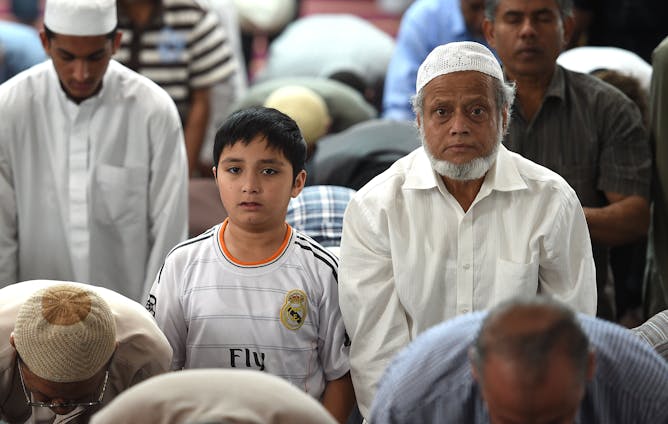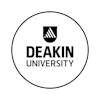|
|
|
Editor's note
|
|
Conventional political wisdom says you should never order an inquiry unless you know what it is going to find, and it would be tempting to think that the Australian Competition and Consumer Commission (ACCC) has found everything it ever will about mortgage rates.
At the request of the then treasurer, Scott Morrison, it produced an 80-page report on mortgage interest rates just last November. But that report was notable for what it didn’t find. The banks used “opaque pricing” and media releases announcing interest rate changes by banks didn’t “always tell the full story”.
The inquiry announced by Treasurer Josh Frydenberg on Monday will be conducted under Part VIIA of the Competition and Consumer Act, meaning the ACCC will be able to use compulsory information-gathering powers it couldn’t use last time.
Mark Humphery-Jenner writes this morning that while the banks’ overall profitability and net interest margins are public knowledge, the profitability and margins on mortgages are not. Nor does anyone outside the banks have much of an idea about the extent to which they charge different customers different prices for the same product.
It’s not at all certain that the 11-month inquiry will find the banks have done anything wrong. What it should find is what goes on under the hood, enabling us to better understand whether they are profiteering when they don’t pass on Reserve Bank interest rate cuts.
No-one outside of the banks, including the treasurer, is too sure.
Speaking of mortgages, this morning María Yanotti and Danika Wright outline new research that finds that an astounding two-thirds of property investors buy rental properties in the suburbs in which they live. It means they are putting all their property eggs in one basket. As the authors ask, how likely is it that the location in which you happen to live will outperform every other location?
Oh, and the Nobel Prize for Economics was announced overnight.. One of the winners is a woman, only the second in the 50-year history of the prize. At age 47, Esther Duflo is the yongest ever recipient of the prize. Arnab Bhattacharjee and Mark Schaffer say that alone is important, as is her work on finding practical ways to alleviate global poverty.
|
Peter Martin
Section Editor, Business and Economy
|

|
|
Top stories
|

The banks haven’t provided the Commission with as much information as it would like.
DAVID MARIUZ/AAP
Mark Humphery-Jenner, UNSW
The ACCC has inquired into mortgage rates before. This time will want detail.
|

How likely is it that where you happen to live will always outperform every other location?
Shutterstock
María Yanotti, University of Tasmania; Danika Wright, University of Sydney
Investing where you've last invested isn't bright. new research finds that two thirds of property investors do.
|

The Australian Federation of Islamic Councils says the bill doesn’t go far enough to protect religious minorities in an increasingly intolerant society.
Dan Himbrechts/AAP
Erin Wilson, University of Groningen
Many scholars agree it is impossible to have a clear, universal definition of religion. Given this ambiguity, passing new laws using a specific concept of religion can have serious repercussions.
|

Fat activists argue fat is the most appropriate word to describe their bodies.
Yulia Grigoryeva/Shutterstock
Cat Pausé, Massey University
The British Psychological Society is calling for a language change, from 'obese people' to 'people living with obesity'. But using the word obesity can reinforce rather than prevent stigma.
|
Business + Economy
|
-
Arnab Bhattacharjee, Heriot-Watt University; Mark Schaffer, Heriot-Watt University
Abhijit Banerjee, Esther Duflo and Michael Kremer win the Nobel Prize for Economics 'for their experimental approach to alleviating global poverty'.
|
|
Politics + Society
|
-
Brendan Churchill, University of Melbourne
Accurate data on Australians' gender and sexual identity helps governments make good policy – and, importantly, ensures those communities are seen and recognised.
-
Michelle Grattan, University of Canberra
Focusing on China policy in a Monday address - released ahead of delivery - Penny Wong says Australia needs to 'define the boundaries' of its engagement with China as the relationship is in a new phase.
|
|
Environment + Energy
|
-
Bruce Mountain, Victoria University
New analysis revealed less than half the extra pumped hydro capacity promised by Snowy 2.0 can be delivered. There is now overwhelming evidence the project should be put on hold.
-
Jonathan Pollock, Australian Bureau of Meteorology; Andrew B. Watkins, Australian Bureau of Meteorology; Catherine Ganter, Australian Bureau of Meteorology; Paul Gregory, Australian Bureau of Meteorology
Southern and eastern Australia need to prepare for heatwaves and increased fire risk this summer, as forecasts predict hot, dry weather.
|
|
Cities
|
-
Chyi Lin Lee, UNSW; Jerry Liang, Deakin University; Kang Koo, Deakin University
Value capture depends on infrastructure increasing the value of affected areas in the first place. Victoria's level crossing removal project shows the impact on property values can be significant.
|
|
Science + Technology
|
-
Peter Ellerton, The University of Queensland
Pope Francis continues to champion the importance of science in our world. Having the head of the Catholic Church support various scientific movements is a win for us all.
|
|
Arts + Culture
|
-
Joanna Mendelssohn, University of Melbourne
Guan Wei's art, now on display at Sydney's Museum of Contemporary Art, crosses both Chinese and Australian cultures, working together in harmony, best described as an aspect of feng shui.
-
Justin Matthews, Auckland University of Technology
The fictitious world of Judge Dredd highlights authoritarianism, including laws against outsiders, walls around cities and rules that deny people basic rights. Are the Dredd comics a cautionary tale?
|
|
Education
|
-
Grace Skrzypiec, Flinders University; Mirella Wyra, Flinders University
More than 800 students completed a questionnaire about peer aggression. Nearly 50% said they had been harmed by a peer ,while around 30% said harmful experiences were just "banter".
|
|
| |
Featured jobs
|

|
St Hilda's College, The University of Melbourne — Parkville, Victoria
|

|
Charles Sturt University — Port Macquarie, New South Wales
|

|
La Trobe University — Bundoora, Victoria
|

|
RMIT University — Melbourne, Victoria
|
|
|
|
Featured events
|

|
Sydney CBD, Surry Hills and Parramatta, Sydney, New South Wales, 2000, Australia — University of Sydney
|

|
Treasury Theatrette, 1 Macarthur Street, East Melbourne, Melbourne, Victoria, 3000, Australia — Australia New Zealand School of Government
|

|
Leighton Hall, UNSW Sydney , Sydney, New South Wales, 2033, Australia — UNSW
|

|
Deakin Downtown, Level 12, Tower 2 Collins Square, 727 Collins Street, Docklands, Melbourne, Victoria, 3008, Australia — Deakin University
|
|
|
|
| |
| |
| |
| |
| |
|
|
|
|
|
|
|